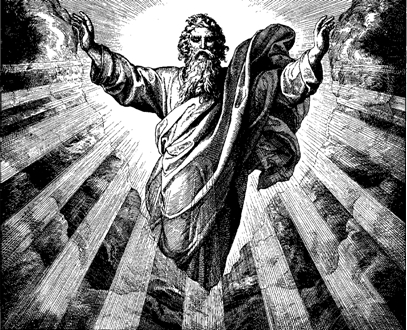 A few years ago my article “The Epistemological Objection to Divine Command Ethics” was published. In it, I address a particular objection to a divine command theory of ethics. That objection is as follows: If the property of being morally required is the same as the property of being commanded by God, then people who do not believe in God cannot know that they have moral obligations, since they do not know that they have been commanded by God. But it’s part of the nature of moral obligations that people understand why they have them. So let’s reject a divine command theory of ethics. An epistemological argument is one that is concerned with what a person knows (or whether or not they can know something) and how they know it. In the process of making the argument I name a few philosophers who have made variants of this argument, but I focus mostly on Wes Morriston’s argument due to its detail and care.1
A few years ago my article “The Epistemological Objection to Divine Command Ethics” was published. In it, I address a particular objection to a divine command theory of ethics. That objection is as follows: If the property of being morally required is the same as the property of being commanded by God, then people who do not believe in God cannot know that they have moral obligations, since they do not know that they have been commanded by God. But it’s part of the nature of moral obligations that people understand why they have them. So let’s reject a divine command theory of ethics. An epistemological argument is one that is concerned with what a person knows (or whether or not they can know something) and how they know it. In the process of making the argument I name a few philosophers who have made variants of this argument, but I focus mostly on Wes Morriston’s argument due to its detail and care.1
I don’t think this argument is compelling and in the article I explain why. Rather than rehearse the arguments here, I invite the reader to read the article.
One of my favourite atheist writers on meta-ethics and all-round nice guy, Erik Wielenberg alleges that I miss the point of Morriston’s argument (so much for being a nice guy, jerk). He says that I miss the point of Morriston’s argument, “mistakenly construing Morriston’s argument as an epistemological objection to divine command theory.”2 Really, says Wielenberg, Morriston does not offer an epistemological objection, but a metaphysical objection according to which reasonable non-believers would not even have moral obligations if a divine command theory were correct.
- Wes Morriston, “The Moral Obligations of Reasonable Non-believers: A special problem for divine command metaethics,” International Journal for the Philosophy of Religion 65 (2009), 1-10. [↩]
- Wielenberg, Robust Ethics: The Metaphysics and Epistemology of Godless Normative Realism (Oxford: Oxford University Press, 2014), 79. [↩]




 Occasionally, when somebody first hears about divine command ethics (the view that what is right or wrong is what God commands or forbids), the response is one of incredulity: “What? You believe THAT?! So if God commanded you to kill that person over there, you would do it? Really?” And right there, whether the critic realises it or not, there is almost certainly a double standard at work. Read on to see why.
Occasionally, when somebody first hears about divine command ethics (the view that what is right or wrong is what God commands or forbids), the response is one of incredulity: “What? You believe THAT?! So if God commanded you to kill that person over there, you would do it? Really?” And right there, whether the critic realises it or not, there is almost certainly a double standard at work. Read on to see why. In this episode I continue to re-trace my steps through my mini speaking tour earlier this year. This talk was the second in a series of introductory talks on apologetics. In it, I introduce and explain the moral argument for the existence of God.
In this episode I continue to re-trace my steps through my mini speaking tour earlier this year. This talk was the second in a series of introductory talks on apologetics. In it, I introduce and explain the moral argument for the existence of God. This is the first in a new category of blog – Q and A. Every now and then I get an email or a message via Facebook with a question related to something that somebody has just read at the blog or in an article, or heard in a podcast episode – or maybe just a question out of the blue about an issue in theology, philosophy or biblical studies. I haven’t answered every such question and I can’t do so in future either – not because I don’t appreciate being asked, but sometimes I’ve got a pile of emails sitting there and I just can’t justify replying to all of them, nor could I necessarily do so even if I tried. I’m really sorry if you’re one of those people who I haven’t replied to. This is what I do in my spare time.
This is the first in a new category of blog – Q and A. Every now and then I get an email or a message via Facebook with a question related to something that somebody has just read at the blog or in an article, or heard in a podcast episode – or maybe just a question out of the blue about an issue in theology, philosophy or biblical studies. I haven’t answered every such question and I can’t do so in future either – not because I don’t appreciate being asked, but sometimes I’ve got a pile of emails sitting there and I just can’t justify replying to all of them, nor could I necessarily do so even if I tried. I’m really sorry if you’re one of those people who I haven’t replied to. This is what I do in my spare time. Here it is, the last podcast episode for 2011. This time I’m looking at “the “evil god challenge” as posed by Stephen Law in a fairly recent article by that name. Isn’t the evidence for a good God really no better or worse than the evidence that an evil god? In short, no. Here I explain why I think (as I suspect many may think) that the evil god challenges has major philosophical shortcomings, in spite of being an argument worthy of our attention.
Here it is, the last podcast episode for 2011. This time I’m looking at “the “evil god challenge” as posed by Stephen Law in a fairly recent article by that name. Isn’t the evidence for a good God really no better or worse than the evidence that an evil god? In short, no. Here I explain why I think (as I suspect many may think) that the evil god challenges has major philosophical shortcomings, in spite of being an argument worthy of our attention.